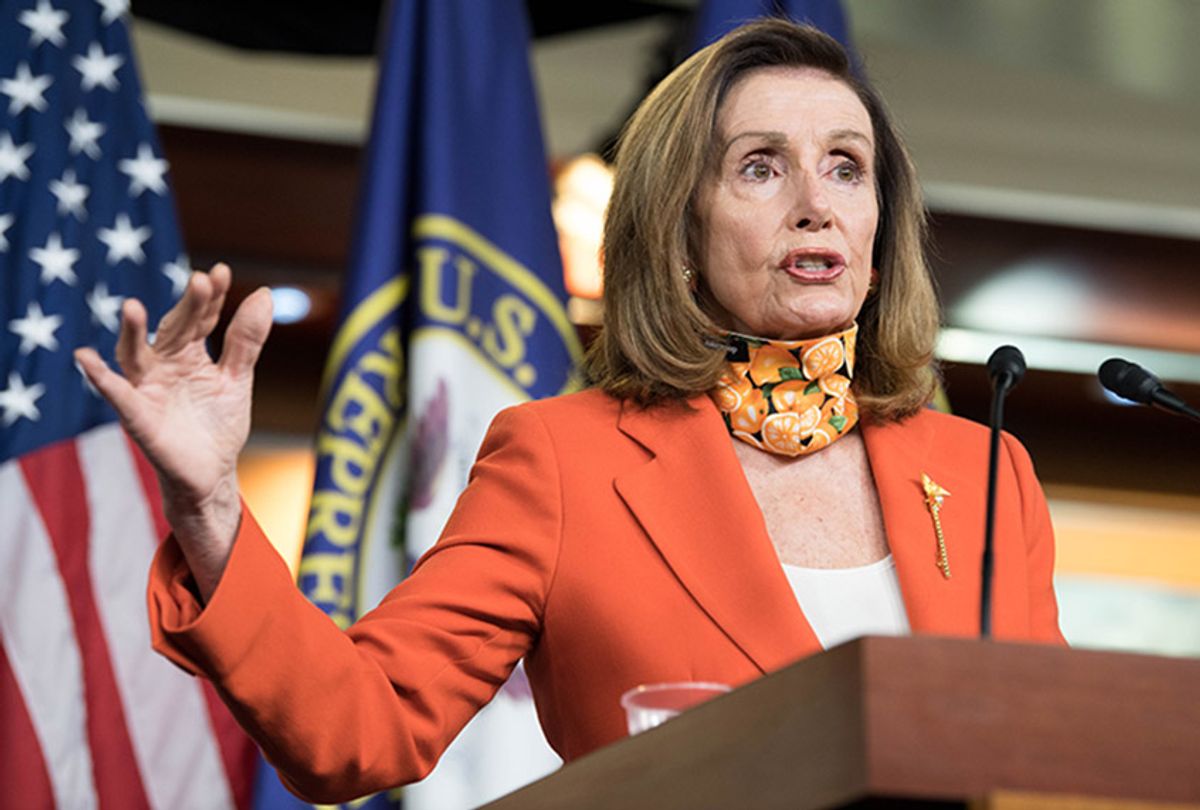House Speaker Nancy Pelosi, D-Calif., warned Democrats that the House of Representatives may have to decide the election winner if neither candidate wins an outright majority in the Electoral College.
The chances that neither President Donald Trump nor Democratic nominee Joe Biden will win at least 270 electoral votes are slim, according to election forecaster FiveThirtyEight, but Pelosi sent a letter to Democratic colleagues on Sunday preparing lawmakers for the possibility that the election may be deadlocked.
If neither candidate wins 270 electoral votes, each state's House delegation would get one vote apiece, meaning that Democrats would not hold an advantage despite holding a 34-seat majority. Republicans currently control 26 delegations while Democrats control 22 delegations. Pennsylvania's delegation is split evenly. Democrats hold a 7-6 edge in Michigan, with Rep. Justin Amash, I-Mich., holding the 14th seat.
"The Constitution says that a candidate must receive a majority of the state delegations to win," Pelosi wrote, according to Politico, which first reported the letter. "We must achieve that majority of delegations or keep the Republicans from doing so."
Pelosi called for Democrats to launch an "all out effort" to capture Republican-led House seats, according to Reuters, "because we cannot leave anything to chance."
Pelosi has "repeatedly" raised the issue with Democratic leaders in recent weeks, according to Politico, and Trump himself has raised the possibility.
"And I don't want to end up in the Supreme Court and I don't want to go back to Congress either, even though we have an advantage if we go back to Congress — does everyone understand that?" Trump said during a rally in Pennsylvania on Saturday. "I think it's 26 to 22 or something because it's counted one vote per state, so we actually have an advantage. Oh, they're going to be thrilled to hear that."
The concern over the possible scenario, which has not happened since 1876, could result in a new focus on House races in Montana and Alaska, which could decide the presidency. The presidential election results are not certified until Congress is sworn in, meaning that Democrats could bolster their count ahead of a possible vote.
Democrats hold a one- or two-seat edge in seven states that are expected to see at least one contested House race. Republicans hold a similar edge in Florida.
Democrats are expected to pick up seats in the Pennsylvania delegation after the state Supreme Court struck down a Republican gerrymander. Michigan is expected to be deadlocked, however, with a Republican expected to win the retiring Amash's red-district seat. That means the Alaska and Montana at-large seats, which are currently held by Republicans, could swing the vote to Democrats if they are able to capture the deep-red seats.
"If Dems hold their delegations, they would have to flip Alaska-AL *OR* Montana-AL for the House to deadlock," tweeted election analyst Daniel Nichanian. "Those 2 races are key."
Here's my back of the envelope math on state delegations, with the likeliest to be in play bolded: https://t.co/K1prbiKxEc pic.twitter.com/XavHeOZRkO
— Kyle Cheney (@kyledcheney) September 27, 2020
"We're trying to win every seat in America, but there are obviously some places where a congressional district is even more important than just getting the member into the U.S. House of Representatives," Rep. Jamie Raskin, D-Md., told Politico.
Politico's Kyle Cheney noted that there could also be a "potential fight" to decide "which members are seated in the case of disputed election results." If House Democrats hold their majority, they could refuse to seat Republican members where election results are in question.
"Early January could be the greatest constitutional clash we've seen in the Trump era," he wrote, "and maybe any modern era."



Shares